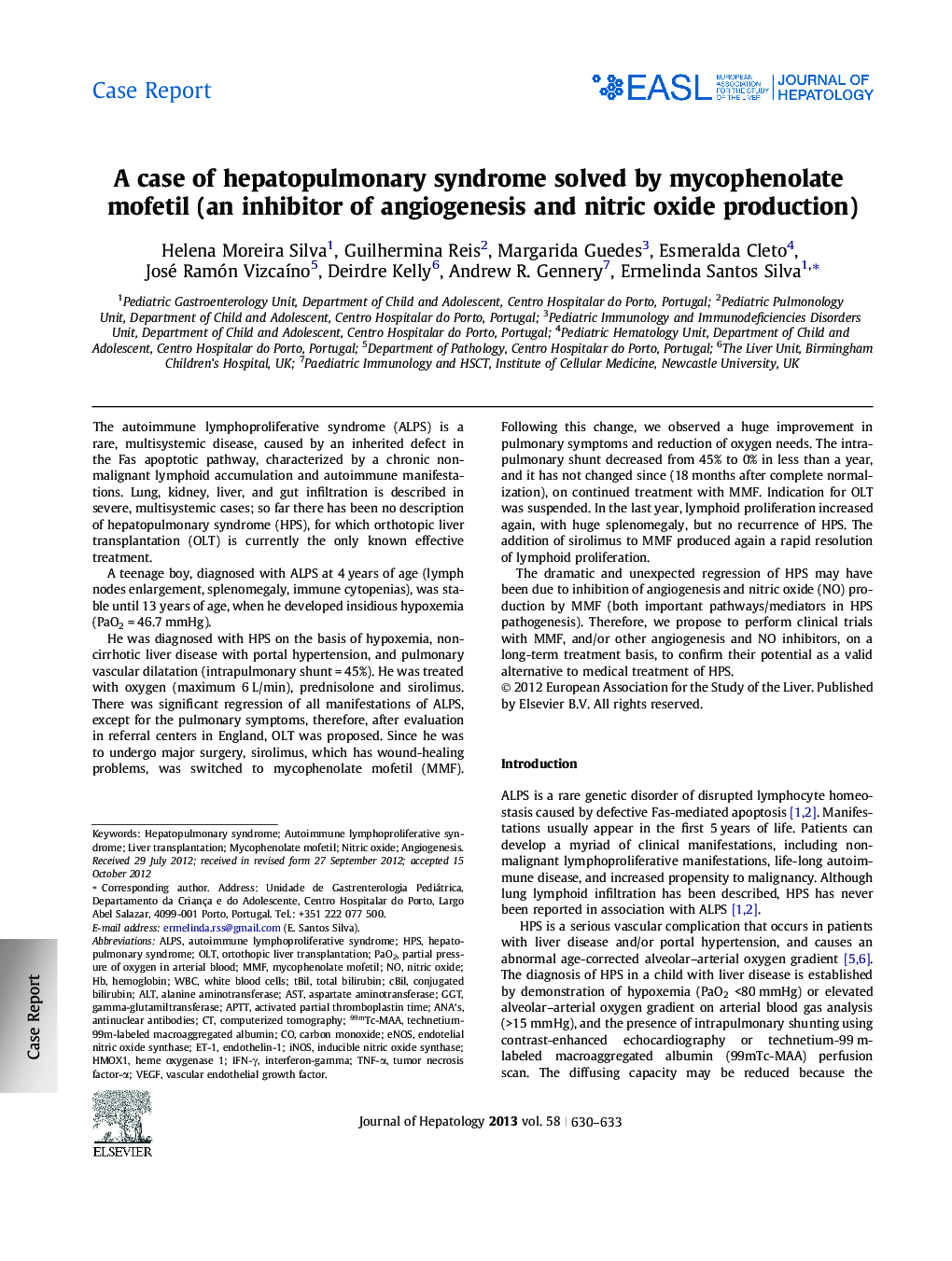| کد مقاله | کد نشریه | سال انتشار | مقاله انگلیسی | نسخه تمام متن |
|---|---|---|---|---|
| 6105729 | 1211152 | 2013 | 4 صفحه PDF | دانلود رایگان |
The autoimmune lymphoproliferative syndrome (ALPS) is a rare, multisystemic disease, caused by an inherited defect in the Fas apoptotic pathway, characterized by a chronic non-malignant lymphoid accumulation and autoimmune manifestations. Lung, kidney, liver, and gut infiltration is described in severe, multisystemic cases; so far there has been no description of hepatopulmonary syndrome (HPS), for which orthotopic liver transplantation (OLT) is currently the only known effective treatment.A teenage boy, diagnosed with ALPS at 4 years of age (lymph nodes enlargement, splenomegaly, immune cytopenias), was stable until 13 years of age, when he developed insidious hypoxemia (PaO2 = 46.7 mmHg).He was diagnosed with HPS on the basis of hypoxemia, non-cirrhotic liver disease with portal hypertension, and pulmonary vascular dilatation (intrapulmonary shunt = 45%). He was treated with oxygen (maximum 6 L/min), prednisolone and sirolimus. There was significant regression of all manifestations of ALPS, except for the pulmonary symptoms, therefore, after evaluation in referral centers in England, OLT was proposed. Since he was to undergo major surgery, sirolimus, which has wound-healing problems, was switched to mycophenolate mofetil (MMF). Following this change, we observed a huge improvement in pulmonary symptoms and reduction of oxygen needs. The intrapulmonary shunt decreased from 45% to 0% in less than a year, and it has not changed since (18 months after complete normalization), on continued treatment with MMF. Indication for OLT was suspended. In the last year, lymphoid proliferation increased again, with huge splenomegaly, but no recurrence of HPS. The addition of sirolimus to MMF produced again a rapid resolution of lymphoid proliferation.The dramatic and unexpected regression of HPS may have been due to inhibition of angiogenesis and nitric oxide (NO) production by MMF (both important pathways/mediators in HPS pathogenesis). Therefore, we propose to perform clinical trials with MMF, and/or other angiogenesis and NO inhibitors, on a long-term treatment basis, to confirm their potential as a valid alternative to medical treatment of HPS.
Journal: Journal of Hepatology - Volume 58, Issue 3, March 2013, Pages 630-633
